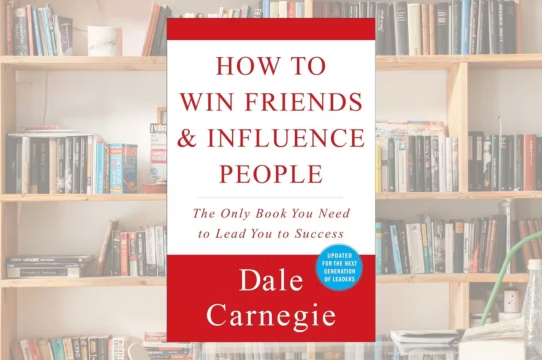Public speaking is like every other skill you can learn, practice, and perfect. The idea that people are born with it is false.
No one is born with it – everyone learns it via either conscious practice or environmental influence.
It is one of those high income skills you can learn to share your ideas and sell yourself to the audience
Table of Contents
What is Public Speaking?
Public Speaking is an art of communication involving the transfer of information from one person to another or a group of persons.
It is about your audience gaining complete clarity of your message.
The way you look, sit or stand, the way you move your hands, the tone of your voice, and your approach all send out a message.
Once misinterpreted, there is a breach in communication.
Below are tips to overcome your fears of acquiring public speaking skill.
Public Speaking Skill: How To Overcome Your Fears
1. Face Your Fear
Fear of public speaking cripples, crumbles and destroy fast than you can imagine.
It denies you of beautiful opportunities to speed up your career progress.
You don’t need to wait for your fear to vanish because it will never be over.
Great public speakers are not people without fear. They are people who have a reason stronger than fear.
Fear is neither a friend nor a foe. That’s because it sometimes yields positive results (fear of the Lord) and sometimes negative results (promote stagnation).
It’s what you make out of it that matters. Do you choose to see it as a positive or negative? The choice is yours.
No one is born a pro in public speaking. We all learned it.
2. Be Thyself
A common problem I noticed today among uprising public speakers is the feeling that their audience needs to see you as being professional.
They do all there is to impress the audience when the very reason for meeting with the audience was to express their points.
We have this perception of who we should be. And so, we are told to fake it until we make it.
But let me tell you something, you only need to work it till you make it.
Now, I am not against being professional in your acts but be natural with it.
Your audience will either agree or disagree to the point you are making – nothing more.
Have you seen politicians, top business executives and comedians speak? You will most likely lose your defense the more you listen to them. Same can be with you.
We should learn how to be ourselves at our best. You should learn how to be comfortable when speaking to the audience.
3. Take a Pause and Breathe
Have you ever had the thought that if you take too long to reply, your audience will think you don’t know it enough? That’s false.
Great public speakers pause. And even when they pause, it’s fake.
The problem with you not taking a pause when you speak is you fulfilled the saying “In many words come sin”.
When you take a pause, you have more breath in you to think before speaking.
Use the silent pause to think on your feet.
When you talk too much without a break, your audience can accurately predict what you want to say next.
Say something (maximum of 3 sentences), then take a pause (3 seconds). Doing this allows them to digest what you have already said.
This remains one of the best tips on a public speaking skill you will get.
Always remember this quote in days of help.
“The effectiveness of your speech has nothing to do with the number of words spoken but the quality of the content.”
Oluboba Ayodeji
4. Avoid Useless Words
I was at a friend’s place when I called her attention to a prominent man in the country speaking on TV.
All we could hear was, Uhm, Ehm, uh and more. He knows what he was saying (to my knowledge) but his filters would not let us get his message right.
Filler words are common in these situations:
1) When you know too much but lack preparation.
2) You know little of the question asked.
3) You are out of breath and your mouth is dry (out of saliva).
The words you should avoid are but are not limited to.
- Like Seriously (A wrong trend among youths).
- I think or I believe (“I know” or “I suggest” will do more)
- As a matter of fact (Your word still passes the same message without it.)
- Frankly speaking (You can convey your message with, “I am serious”)
- And so (Best you use at a minimal either “And” or “So”)
- Okay or Ok (How do you feel when replying to your chat with “Ok”?)
- Very (She is beautiful better than she is very beautiful)
- That (Most sentences are complete without “that”)
- Yeah (Yes is better.)
- Ehm, Uh, Hmm (Wrong filters).
5. Maintain Eye Contact
Have you ever had someone looking elsewhere during a conversation with you? How do you feel?
It shows there is something more important to you than our discussion. Most times, I end the conversation.
When you buy most public speaking courses, what you hear is, “look at your audience in their eyes when speaking. I mean eye to eye”.
While it’s true to have eye contact with our audience, we have misinterpreted the actual meaning.
Not everyone is comfortable looking at their listeners’ eyeball to eyeball, most especially at a close range.
Also, you can become distracted looking into the eyes and lose focus.
So, how do you make use of this public speaking tip?
Look at your audience’s forehead, brow, or in between the eyes. Switch among these three.
I call this act “The art of looking without looking.”
Even with my advice, I suggest you pick your own spot. Stick with what works for you.
I have a friend who prefers to look at people’s lips when talking. Another prefers the nose.
Maintaining eye contact means looking at someone and not staring at the person.
6. Prepare and Practice
Mark Twain said, “It usually takes me three weeks to prepare an impromptu speech”.
I only know a few people who have the gift of meeting up with unprepared demands.
Preparation helps with what to say, and practice helps with how to say it.
No man is better than his prepared self.
Oluboba Ayodeji
I was at a conference and without the help of a prophet; I knew the speaker lacked preparation.
How do I know? Simple…
They often start low, stammering, staggering and beating about the bush. Also, they tell unnecessary personal stories.
Your audience knows if you come prepared for them.
When you come prepared for a public speaking session, you don’t take too long to flow.
You are like a pregnant woman waiting to deliver. You hit the nail on the head and were straight to the point.
Deliberate practice is the mother of perfection
Oluboba Ayodeji
7. Make Use of Your Time
In his words, Lou Cook, former president of the Alexandria, Virginia, school board, uses this adage: “Sometimes the mind can absorb only what the seat can endure.”
How do you make use of your time in a public speaking session with the audience?
- Start by telling them what they will know
This is where you give an intro to what you will teach them. You let them realize how important this is to their business and life.
You mostly ask a question at this point.
- Continue by telling them what they need to know
Hold nothing back at this session because it is the point that is most practical of your time with them.
You take them step-by-step teaching of the promises you made earlier.
- Remind them what they already know.
Reinforce your points to them without lagging on any. No one appreciates you taking a longer time here. Keep It Simple and Short (KISS).
After all, be proud to walk out of the stage because you have just delivered an excellent speech.
Conclusion on Public Speaking Skill
Nothing can replace face-to-face communication.
We have become so lost in technology that we have forgotten the joy of physical presence.
Take a silent survey of the gatherings of youth sitting and waiting for an event to start.
What you will notice is a large number (>85%) glued to their phones. Chargers everywhere.
Rather than starting a conversation with the person sitting next to them, they hide their weaknesses by phone pressing.
All these contribute to low public speaking skill.
It is what you sow; you reap. It is what you feed that grows.
Let’s get this straight. I am not against the evolution of technology. That would be unwise of me.
I teach how to sell online, and that was only possible because of technology.
What I am against is the wrong use of technology by those who are ignorant.
Technology is an advancement of communication and not a replacement. It is there to make life easy and not lonely.
Thank you.



